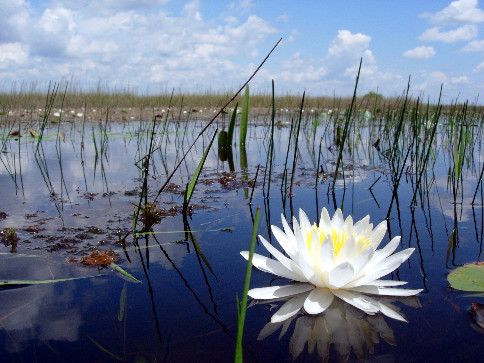 The Florida Everglades, courtesy of USGS.
The Florida Everglades, courtesy of USGS.
President Visits Florida, Highlights Economic Impact of Climate
April 22nd was the 45th anniversary of Earth Day, an annual holiday to promote awareness of preserving our planet. The President took this opportunity to visit the Florida Everglades in order to highlight the threats that climate change poses to the average American. For Floridians, climate change is going to hit people right where it hurts—their wallets.
As ASP has pointed out in its Pay Now, Pay Later project, two of Florida’s most important industries are threatened by sea-level rise: tourism, and real estate. As the sea-level rises due to melting glaciers in the Antarctic, coastal Florida will become vulnerable to flooding and storm surges. It is predicted that the sea level rise could pose a risk to valuable coastal property, which would severely damage valuable coastal property and important tourist attractions. In as little as 10 years climate change could be costing Floridians billions annually. On top of that, climate change is expected to make severe hurricanes more likely, increasing the risk of storm damage.
Florida serves as an example of the practical implications of climate change, and what effect climate change is going to have on the daily lives of the average American. Climate change is not only a threat to our security concerns, it is also a threat to our economic prosperity. While “pay now or pay later” may just seem like rhetoric, it rings true for our coastal economies that will be the first to suffer from encroaching sea-level, flooding, and intense storms.
Addressing climate change is an investment in our future, and not just the preservation of our environment, but of our economic prosperity. We as Americans are threatened by changes in the environment in numerous ways. This is not a problem which exists solely abroad, or as an ancillary global concern, it is a U.S. security issue that must be treated with the same level of commitment as other policy issues.





